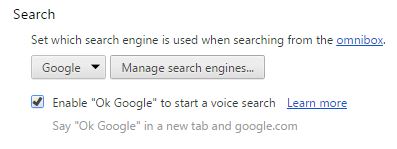Google removes "always listening" code from Chromium

Giving in to user backlash, Google has removed code from Chromium that originally allowed the browser to listen in on a computer's microphone.
The code in question will no longer be included, starting with Chromium build r335874. Prior builds automatically downloaded an extension that could tap a microphone for the purpose of hearing voice commands.

On the surface that doesn't sound nefarious when you consider that Google's Chrome browser -- which includes proprietary Google code -- has had a similar function for months.
Featured
The intent of the extension is listen for the "OK Google" hot word to perform searches and voice commands, as well as get Google Now information.
The problem here is that Chromium isn't Chrome; it's an open-source browser. As such, all of the code can be publicly examined. That wasn't the case with the extension, however; it wasn't even appearing in the list of installed extensions even though it was present in prior Chromium builds.
Essentially, Google was installing a code package that couldn't be inspected and doing so without a user's consent. That's a big no-no for privacy advocates and flies against the spirit of open-source software.
Unfortunately, it took the public calling Google out on the situation to make the change. It did, saying this:
"A binary blob module like this can not be installed by a user via clicking on a link. Such a Native Client module can only be installed by the user deliberately from the Chrome Web Store. Chromium is open source and it's important to us, as is it is to you, that it doesn't ship with closed-source components, lazily or not."
Note that even with the extension installed and enabled, the "OK Google" hot word is actually processed locally; the same as it is for Google Android phones -- you can test that by disabling network access and see for yourself.
Regardless, closed-source code shouldn't be part of an open-source browser and certainly not in a way that appears to be behind the scenes. It's good that Google acquiesced here but this situation really shouldn't have happened to begin with.